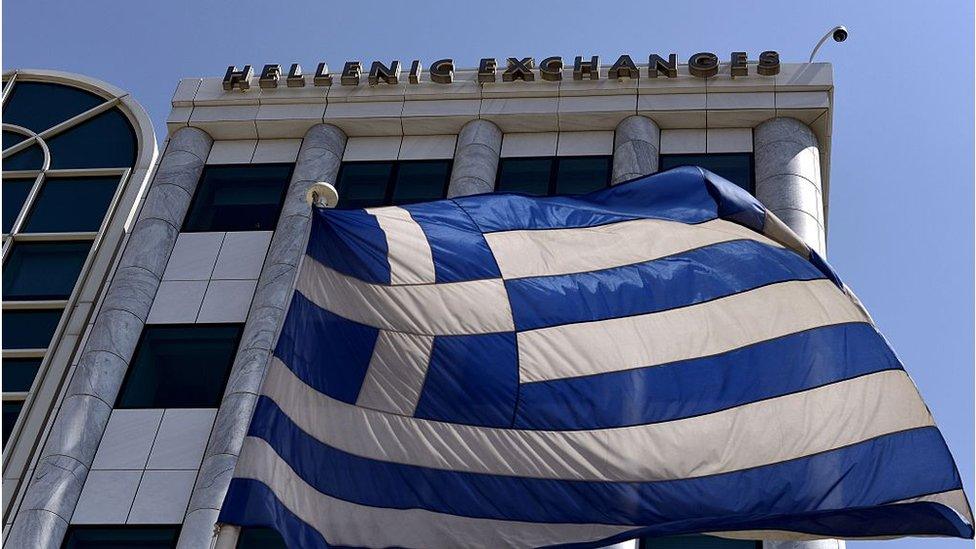Greek economy shrinks between October and December
- Published

The Greek economy unexpectedly shrank in the three months to December, latest figures show.
Output fell by 0.4% in the final quarter of the year, compared with growth of 0.9% in the third quarter. Analysts had been expecting the growth to continue.
The country is in the throes of difficult bailout talks with international creditors.
Overall, eurozone growth, external was revised down to 0.4% for the fourth quarter.
An initial estimate had put the growth rate at 0.5%, but the estimate was reduced partly as a result of slower than expected growth in Germany.
However, Germany's 0.4% growth rate in the final quarter of 2016 was still better than the 0.1% rate recorded in the previous three months.
A separate report from the German economy ministry said that rising orders in manufacturing and construction pointed to "solid" growth in the first three months of 2017.
"Economic indicators are pointing to a solid start for the year 2017," it said.
"However, uncertainties remain especially in the trade environment. The outlook for the global economy remains subdued."
Debt relief
The disappointing Greek figures come as fears grow that the debt crisis could resurface.
The country is under pressure to step up economic reforms, including pension cuts and tax rises.
In its latest assessment on the Greek economy, external, the International Monetary Fund argued that "Greece should deepen and accelerate reforms, which, together with further debt relief, are needed to allow the economy to return to a sustainable growth path".
But the call for more leeway for the country to pay its debts, prompted opposition from the eurozone, which has already given the country significant debt relief and is reluctant to go much further.
The issue will be discussed at a eurozone finance ministers meeting on 20 February. A Greek government spokesman said he was hopeful of agreement.
- Published8 February 2017
